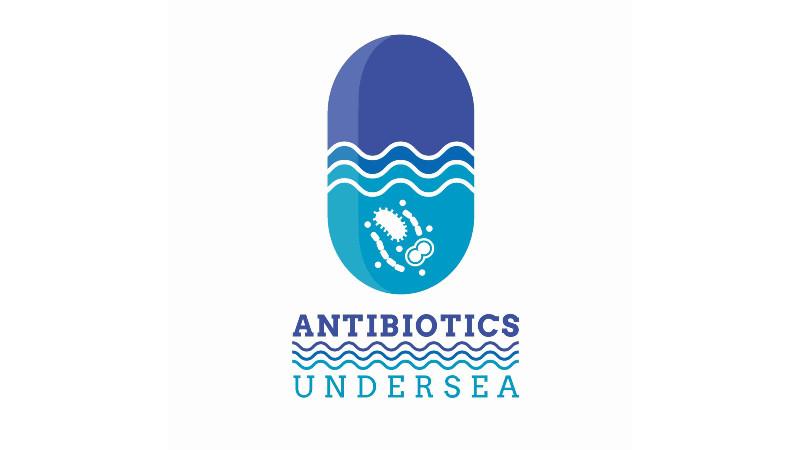Students in the School of Life Sciences have completed a team-based project, funded by the Quintin Hogg Trust, to search for new antibiotics from marine bacteria, in the hope of tackling the rise of antibiotic resistant 'superbugs'.

The Antibiotics Undersea project was designed as a student research project that focused on extracting secondary metabolite compounds from marine bacteria for their potential use as antibiotics.
In the project, the students were able to design their own experiments in teams applying advanced laboratory techniques in the hopes of potentially extracting secondary metabolite compounds from marine bacteria.
Life Science students used molecular biology on-line tools to first identify the marine bacteria and then search bacterial genomes for potential regions that encode for secondary metabolites, and they then designed experiments to potentially grow the bacteria and extract the compounds to test against a range of pathogenic bacteria to determine their antibiotic possibilities.
Antibiotics Undersea was designed to enhance wider employability skills and students completing the program gained points towards the Westminster Employability Award. Throughout their projects they had to do project planning, which included timescales, COSHH (Control of Substances to Hazardous Health) and risk assessments and cost estimates. Students have learned to work with Teams, present findings, keep electronic lab books and collaborate together.
The oceans hold a diverse array of species of bacteria which are considered as an emerging source of novel bioactive metabolites, some with the potential to be novel antibiotics.
Antibiotic resistance and the rise of ‘superbugs’, bacteria which cannot be treated with commonly used antibiotics, has been highlighted as a major public health threat.
Many antibiotics commonly used are derived from bacteria or fungi but the Antibiotics Undersea project has researched the potential for new antibiotics naturally produced by marine bacteria which were collected from the seas around the British Isles.
The project, which was set up to provide further training and opportunities to support students, also included talks from a representative from Qiagen, Dr Beth Sawyer, on the need for novel antibiotics for TB and from Microbiology Society champion Cadi Davies.
Commenting on the Antibiotics Undersea project, one student said: “The molecular biology workshops were very interesting and informative. They helped me gain insight on using novel bioinformatic tools I have never used before. The hands-on work experience using these tools myself and following set procedures of genome sequencing and analysis would take me a long way career wise.”
Another student said: “It was very interesting to use various different software applying molecular biology. Also very innovating to work on the cultures and contribute to potential research of antimicrobials. I really enjoyed being able to use these programmes and have learnt a lot of critical thinking, problem solving and precision skills. I have gained more confidence in my research skills and knowledge about what devising a laboratory method involves and requires.”
Linda Percy, course leader Biological Sciences, said: “The enthusiasm and commitment from the participants enrolled on the project has been amazing. They have developed a wide range of new skills, engaged with external speakers and considered future employability. Their experimental design using our novel marine bacteria cultures will enhance the pathway of research into the quest for novel antibiotics here at the University.”
Find out more at the Antibiotics Undersea twitter.


